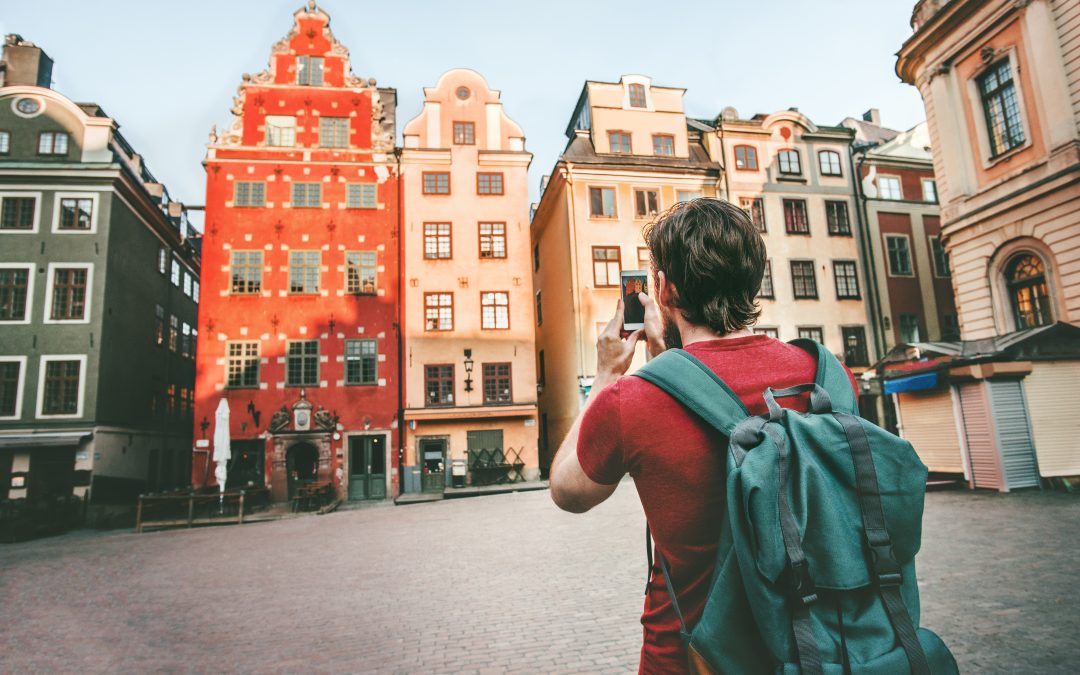Millennials – the generation that triumphed through their first years in the workforce during a major recession and came of age completely immersed in the internet explosion. These now adults are making lasting impacts on many industries – especially travel.
Millennials are proving to be a generation that prioritizes travel more than any other. So much so that in 2018, millennials spent $200 billion on travel, with one in three millennials budgeting over $5,000 for vacations. That’s some pretty significant spending that isn’t projected to disappear anytime soon.
Let’s uncover what makes this generation a different breed of traveler, one that the hospitality industry is working to truly understand.
Who are millennials?
Millennials are between the ages of 24 and 39 years old (1981-1996) and make up the largest demographic in the United States.
From what we can tell, this generation prioritizes travel like no other. For instance, in 2018, 52% were saving for a vacation before the pandemic hit. Even post-pandemic, 82% of millennials still traveled in 2021. These adventure-seeking enthusiasts desire to check off their bucket list with each weekend that passes.
Millennials are more likely to eat out, search for organic, and are willing to pay more to have ‘out-of-this-world,’ Instaworthy cuisine. Thus, tying into their desire to feel connected to a cause and be part of a larger experience. This is part of why traditional marketing techniques don’t capture the millennial audience.
What makes millennials different?
- They are their own travel agents.
- They have influence online.
- Experienced travelers with growing incomes.
- They’re inspired by what they see online.
- Desire personalized engagement with brands.
- Often possess a “Can we do it affordably?” mentality vs. “Can we afford it?”
- Travel isn’t just for fun – working Millenials planning events have different priorities.
Marketing Strategies
A few different strategies can be employed to help you attract and retain this demographic.
Make Content Marketing a Priority
Millennials are tech-savvy and heavily influenced by what their social feed is presenting. 87% of millennials indicated that Facebook inspired their booking, and over 50% were influenced by their Pinterest or Twitter feed. Further, most own a smartphone, and most are booking their trips with that phone.
Long-form blog posts about your hotel may work for older generations, but Millennials will lose interest quickly. You’ll want to build your brand image and brand loyalty. Focus on the amenities your hotel offers, highlight the expeditions they can take, or hear from past guests using video clips.
Connect With Social Causes
Millennials are driven by causes they feel connected to. They constantly share their thoughts and photos with the world on social media platforms. It is important to listen to these conversations. With societal issues evolving, it is essential to show that your brand takes a stand on specific topics – and means it. Of course, the issues should be true to your company’s mission and values.
Putting this into action may look like your company donating to organizations that back a particular cause, displaying your commitment to these issues across your marketing, or implementing into how business is conducted at your property.
Offer Unique Experiences
Like we said earlier, millennials are in search of experiences – not just destinations. They want to feel as though they are experiencing something truly unique. This might include activities they’ve wanted to try, people they’d like to meet, or a culture they’re interested in.
Instead of marketing the rates on rooms, sell the story of your hotel, the surrounding area, and what sets your property apart. Think about what is available to do in the surrounding area and weave that into ‘the experience.’ Achieve this by posting snippets of these in an eye-catching way on your social.
Mobile Presence Is a Must
The need for connection is constant, even when out and about. Considering most millennials are researching and booking their travel plans entirely from their phone, you’ll want to make sure your website and social profiles all look good on mobile devices.
From the initial search to the complete sale, you’ll want to ensure the journey for the mobile user is just as fluid as the desktop user. Paid ads on social media are more likely to be effective strategies than commercials for this demographic, so the mobile strategy does not need to revolve solely around the internet browser.
